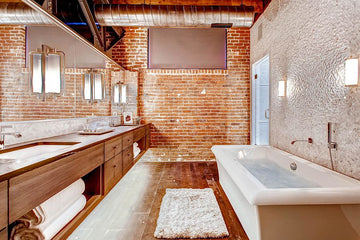In the realm of modern home technology, bathroom humidity sensors have emerged as a crucial component for maintaining a healthy living environment. These devices are not just about comfort; they are essential for protecting your homes infrastructure and enhancing your familys well-being.
Humidity levels in bathrooms can escalate quickly due to frequent showers and baths. If not properly managed, high humidity can lead to a plethora of issues, including mold growth, unpleasant odors, and even structural damage. This is where bathroom humidity sensors come into play, offering a smart solution to monitor and manage humidity levels effectively.

How Bathroom Humidity Sensors Work
At their core, these sensors are designed to detect and measure the moisture content in the air. They utilize advanced technology to provide real-time data on humidity levels, allowing homeowners to take immediate action when necessary. This data can be used to trigger ventilation systems or dehumidifiers, ensuring that the environment remains within healthy parameters.
Moreover, many modern bathroom humidity sensors integrate seamlessly with other smart home devices. This integration can automate the process of adjusting settings based on the sensors readings, providing a hands-free solution to humidity control.
Benefits of Installing Bathroom Humidity Sensors
One of the primary benefits of installing these sensors is the prevention of mold and mildew, which thrive in damp environments. Mold not only damages surfaces but also poses significant health risks, especially for individuals with allergies or respiratory conditions.
Additionally, by maintaining optimal humidity levels, you can prevent damage to paint, wallpaper, and other materials commonly found in bathrooms. This extends the life of your bathrooms interior and reduces maintenance costs over time.
Integration with Smart Home Systems
For tech-savvy homeowners, integrating bathroom humidity sensors with smart home systems can enhance functionality. For instance, connecting these sensors to a smart fan can automate ventilation, turning it on or off based on the humidity readings. This not only saves energy but also ensures that your bathroom remains comfortable and healthy.
For more ideas on creating a smart bathroom, check out these smart bathroom ideas.
Choosing the Right Bathroom Humidity Sensor
When selecting a humidity sensor, consider factors such as sensitivity, range, and compatibility with existing systems. Its also essential to choose a sensor that offers reliable performance and is easy to install and maintain.
For those looking to make eco-friendly choices, integrating humidity sensors with other eco-friendly bathroom fixtures can further enhance sustainability efforts.
Installation Tips and Considerations
Installing a humidity sensor is typically straightforward, but its crucial to position it correctly within the bathroom. Placing it near the shower or bathtub will provide the most accurate readings. Its also advisable to follow the manufacturers instructions carefully to ensure optimal performance.
Conclusion
Bathroom humidity sensors are more than just a luxury; they are an investment in your homes health and longevity. By actively monitoring and managing humidity levels, these devices help prevent mold growth, protect surfaces, and improve overall air quality. As part of a comprehensive smart home system, they offer convenience and peace of mind, ensuring that your bathroom remains a safe and comfortable space.
For more insights on smart home technology, consider exploring articles on smart bathroom scales and rechargeable water sensors.

Frequently Asked Questions
What are the benefits of using bathroom humidity sensors?
These sensors help in maintaining optimal humidity levels, preventing mold growth, and protecting bathroom materials from damage.
How do I integrate humidity sensors with other smart home devices?
Most modern sensors are compatible with smart home systems, allowing you to connect them with devices like smart fans or dehumidifiers for automated control.
Are there specific brands or models that are recommended?
Its best to choose brands known for reliability and compatibility with existing systems. Reading customer reviews and expert recommendations can also be beneficial.






